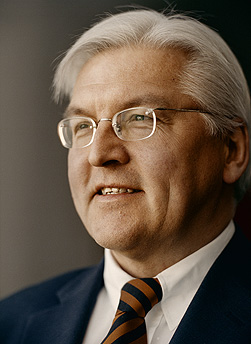Toward the end of August, French President Nicolas Sarkozy ushered in a new phase in the diplomatic negotiations on the Iranian nuclear program by calling for tougher sanctions against Iran. In the event that the U.N. Security Council should prove incapable of taking action, Sarkozy demanded that the Europeans take action themselves: unilaterally. It is only by applying massive economic pressure, Sarkozy argued, that "a catastrophic alternative" could still be avoided: "either the Iranian bomb or the bombing of Iran." At the same time, Sarkozy pressured the French energy companies Total and Gaz de France to forego any further investments in Iran and he called upon French banks to freeze their business with Iran. The policy sketched out by Sarkozy is in fact the only non-military option available. If there is any world power that is in a position to force a change in Iranian policy without the use of military force, then it is the European Union. The United States is not in a position to do so, since the United States already has no trade relations with Iran. China, Japan and Russia are not in a position to do so, because Iran can live without their trade. Only Europe is indispensable for the Mullah regime. Forty percent of all Iranian imports come from the EU. Twenty-five percent of all Iranian exports flow to the EU. Whereas for Japan and China, Iran is principally an energy supplier, the investments and imports that keep the Iranian economy itself working come principally from Germany, Great Britain, Italy, Austria, and France. Germany was and remains Iran's number one trading partner. The former Director of the German-Iranian Chamber of Commerce in Tehran, Michael Tockuss, drew attention to Germany's importance for Iran when he noted, in an interview with the German magazine Focus, that "around two-thirds of Iranian industry is essentially equipped with plant and machinery of German manufacture. The Iranians are thoroughly dependent upon German replacement parts and suppliers." "Thoroughly dependent": the potential efficacy of economic sanctions could hardly be made more obvious. A study undertaken in late 2006 by the Iranian parliament confirmed the obvious: without European replacement parts and products the Iranian economy would be paralyzed in a matter of months.
Berlin and Vienna Stand Against the West: European Divisions on the Iranian Bomb

